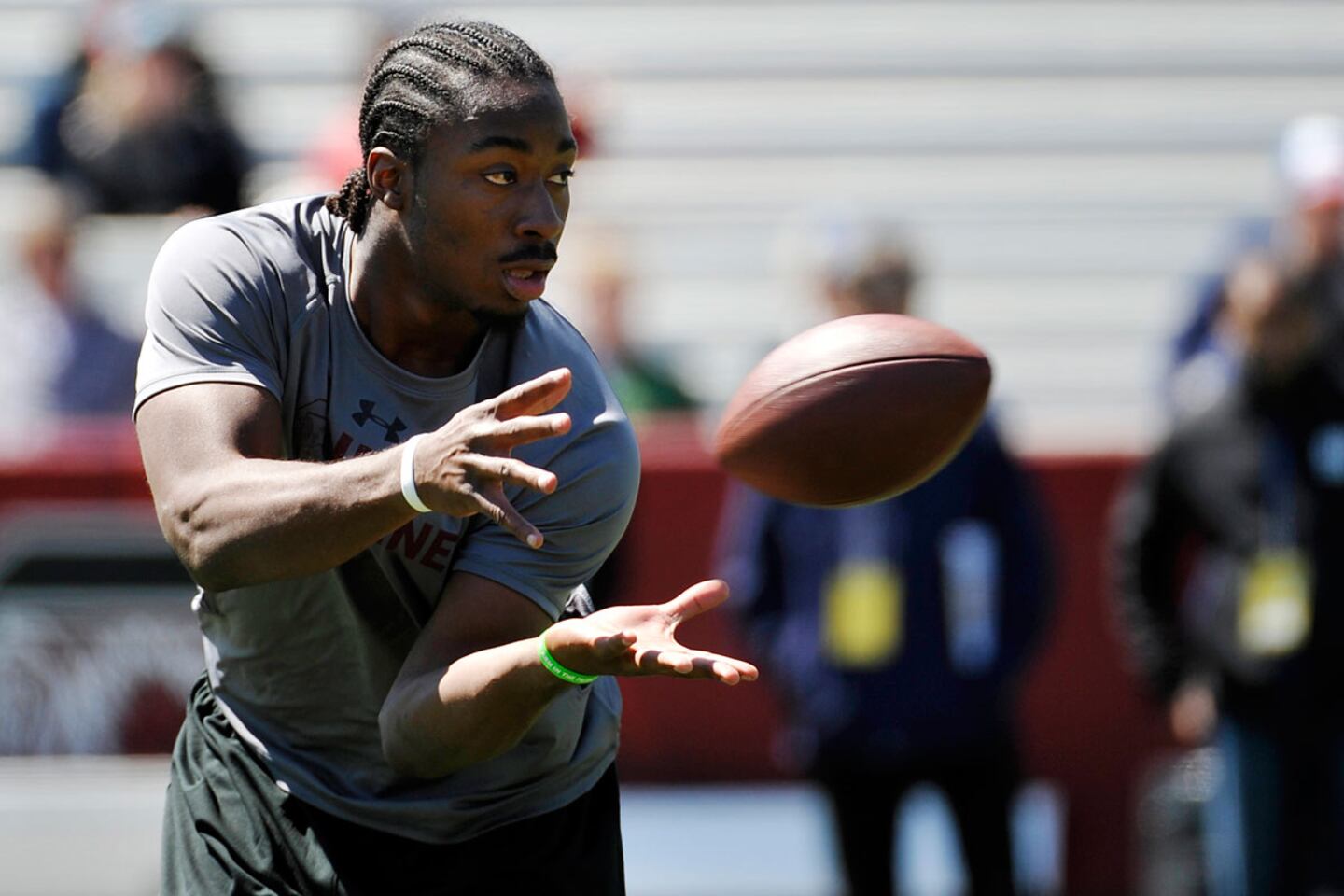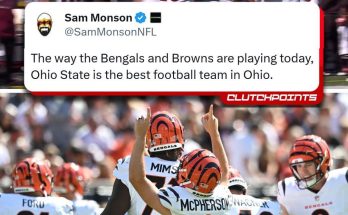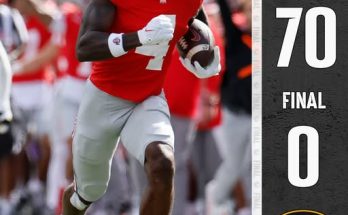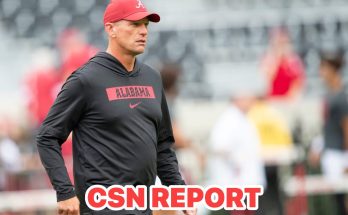Marcus Lattimore’s story has long been one of heartbreak and heroism, a tale etched into college football lore not just for what was lost, but for what was gained in the aftermath. Now, Netflix is bringing his remarkable journey to life in a new documentary titled “Broken Backfield”, slated for release this summer. In a deeply moving and intimate portrayal, the film unpacks the meteoric rise, catastrophic fall, and enduring triumph of the former South Carolina running back who once electrified stadiums—and who now continues to inspire lives far from the spotlight of Saturdays in the South.
Lattimore was a generational talent. A five-star recruit out of Byrnes High School in Duncan, South Carolina, he committed to the Gamecocks in 2010 and immediately lived up to the hype. As a freshman, he bulldozed his way to over 1,000 rushing yards and 17 touchdowns, capturing the SEC Freshman of the Year award and becoming the face of Steve Spurrier’s most formidable South Carolina team in history. His balance, vision, and tenacity made him a nightmare for defenses and a dream for fans. For a program that had often lived in the shadows of SEC powerhouses, Lattimore represented not just hope, but the beginning of something special.
Then came the pain.
First, a torn ACL in his left knee during his sophomore season. It was a major setback, but not a death knell—at least not yet. After months of grueling rehab, he returned in 2012 as determined as ever. Through seven games, he had rushed for 662 yards and 11 touchdowns, reasserting himself as one of the best backs in college football. But then, in a game against Tennessee, the unthinkable happened.
Lattimore took a helmet to the right knee and crumpled to the ground. The stadium went silent. Players from both teams took knees, prayed, and wept. The visual of his leg bending in unnatural directions became one of the most harrowing moments in college football history. It wasn’t just a torn ACL—it was a complete dislocation, tearing every major ligament, damaging nerves, and jeopardizing not only his career but his ability to walk normally again.
“Broken Backfield” begins here—not with the injury itself, but with the moments that followed. The film, directed by Emmy-winning documentarian Rachel Lloyd, avoids sensationalism and instead focuses on the human side of Lattimore’s odyssey. Through exclusive interviews, never-before-seen footage, and raw testimonials from teammates, coaches, doctors, and Lattimore himself, the documentary delves deep into the pain and perseverance that defined the years after the injury.
What emerges is not a tragedy, but a triumph. Lattimore never played another down of football. Drafted in the fourth round of the 2013 NFL Draft by the San Francisco 49ers, he never made it to the field. His body, despite two years of intense rehabilitation and medical support, simply couldn’t recover enough for the rigors of the professional game. But rather than disappear into anonymity or dwell in bitterness, Lattimore chose to give back.
He returned to South Carolina—not as a player, but as a mentor. He founded the Marcus Lattimore Foundation, an organization focused on youth development, character building, and leadership through athletics. He became a high school coach, then a motivational speaker, and eventually rejoined the Gamecocks football program in a player development role. Throughout it all, Lattimore became a symbol of resilience not just for athletes, but for anyone facing unexpected turns in life.
In one poignant scene in “Broken Backfield,” Lattimore is shown visiting the hospital room of a young athlete recovering from a similar knee injury. The boy’s eyes light up, not in awe of a football star, but in recognition of someone who understands. Lattimore sits by his side, holds his hand, and simply says, “You’re going to make it through this. And even if football doesn’t come back, you will.”
That moment encapsulates the soul of the documentary. This is not a comeback story in the traditional sports sense—no final touchdown, no miracle game-winning play. It’s about redefining what success means, what legacy looks like, and how purpose often reveals itself in the ashes of disappointment.
The film also doesn’t shy away from the darker moments. Lattimore candidly discusses his struggles with depression, self-worth, and the identity crisis that comes when a lifelong dream is suddenly snatched away. “I had to mourn football like a death,” he says in one interview. “It wasn’t just my passion—it was my plan. When that was gone, I had to figure out who I was without a helmet.”
Those around him helped light the path. Steve Spurrier, often known for his gruff demeanor, reveals a more tender side in the documentary. He recalls breaking down in the locker room after Lattimore’s second injury, calling it “the hardest moment of my coaching career.” Teammates like Jadeveon Clowney and Connor Shaw offer personal anecdotes about Lattimore’s leadership and character, painting a picture of a man who was never defined by his stats, but by his spirit.
Another powerful element of “Broken Backfield” is its visual storytelling. Archival footage from Lattimore’s high school and college days is juxtaposed with intimate home videos of his rehab sessions and family conversations. The contrast is stark—the blur of lights, cheers, and end zone celebrations fading into sterile hospital rooms and tearful nights. Yet within those quiet scenes lies the heartbeat of the film: the resilience of a man who refuses to let circumstances dictate his destiny.
Perhaps most notably, the documentary doesn’t end with a ribbon-wrapped conclusion. Lattimore’s journey is still unfolding. Today, he continues to mentor young athletes, speak at conferences, and advocate for mental health awareness in sports. He’s also working with the NCAA and various schools to help players prepare for life beyond football. In a sports culture obsessed with glory and highlight reels, Lattimore’s message is refreshingly honest: “If you find your identity only in the game, what happens when the game leaves you?”
Netflix’s decision to spotlight Lattimore’s story is a welcomed one in a media landscape often dominated by scandal and spectacle. “Broken Backfield” reminds us that sometimes, the most powerful victories aren’t scored on the field, but within. It challenges viewers to reevaluate how we define greatness and who we choose to celebrate.
For longtime fans of college football, the film will stir memories and emotions. But for those unfamiliar with Lattimore’s story, it will serve as a moving introduction to a man whose greatest gift might not have been his ability to run through defenders, but to walk beside those who have fallen—and help them rise again.
In an era where athletes are increasingly encouraged to share their full selves—the pain and vulnerability alongside the bravado—“Broken Backfield” stands as a masterclass in storytelling. It’s not about what Marcus Lattimore lost. It’s about what he gave, and continues to give.
As the final credits roll, Lattimore’s voice is heard in narration: “Football gave me a platform. But my purpose? That came after. Sometimes, when your dream dies, your destiny is born.”
“Broken Backfield” premieres exclusively on Netflix on July 26. The legacy of Marcus Lattimore—scarred, sacred, and still shining—will never be the same.



